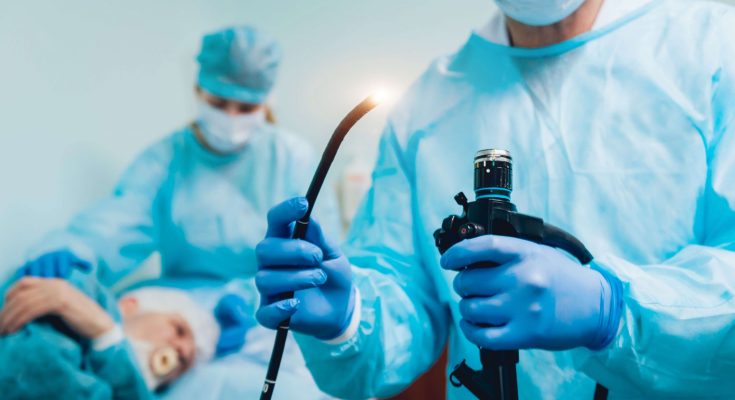Colonoscopy is a medical procedure for examining the large intestine to detect any issues. If your GP suspects certain problems, they might refer you to a colonoscopy clinic in Singapore for a colonoscopy.
It’s like a camera-check inside your gut. Detecting problems early can save lives. Gastro specialists are skilled in using a flexible tube with a tiny camera to look for signs of trouble. If referred, don’t worry—it’s a proactive step to ensure your intestinal health.
What are the Signs that you should have a Colonoscopy?
A colonoscopy is crucial for many, as it reveals potential problems early. It may seem intimidating, but it’s still vital nonetheless. Here are 10 signs you may need a colonoscopy;
- Age Factor: When you hit the age of 45, it’s a significant milestone for your health, particularly in terms of colon health. This is the point at which you should consider getting a baseline colonoscopy. Regular screenings are strongly recommended for adults from ages 45 to 75.
- Family History: Your family’s medical history can hold crucial clues about your own health. If you have close relatives who have had colon cancer or polyps, it’s wise to start undergoing screenings earlier than the recommended age. These screenings help to detect any signs of trouble early. This is especially true for cases where there’s a genetic predisposition to colon-related issues.
- Bowel Changes: Pay attention to what’s happening in your digestive system. Don’t ignore persistent changes like chronic diarrhea, constipation, or alterations in stool consistency. These changes might seem minor. However, they could be indicators of underlying health issues in your colon.
- Bleeding: Blood in your stool or rectal bleeding also isn’t natural. It could be due to a variety of factors, including polyps or cancer. So, it’s essential not to downplay these symptoms. Ignoring such signs could lead to delayed diagnosis and treatment.
- Unexplained Weight Loss: Losing weight unintentionally can be concerning. If you’re shedding pounds without making changes to your diet or exercise routine, it’s worth investigating further. This could be more than a simple shift in lifestyle. It could be a potential health issue. An early colonoscopy, in such cases, can provide insights into whether there’s an underlying problem in your colon contributing to the weight loss.
- Abdominal Pain: Chronic abdominal discomfort, stomach aches, or persistent cramps are signals that your body isn’t functioning optimally. These discomforts might seem like minor inconveniences. But, they could also signify a more significant problem within your colon. A colonoscopy can help identify the source of the pain. This would then allow the specialists at your colonoscopy clinic in Singapore to take appropriate action to alleviate your discomfort and treat the underlying issue.
- Anemia: If you’re experiencing fatigue and have been diagnosed with low iron levels, it’s essential to investigate the root cause. Anemia caused by internal bleeding, possibly originating in the colon, could be the culprit. Ignoring persistent fatigue and assuming it’s merely due to a lack of rest could lead to a missed opportunity for early intervention.
- Previous Polyps: If you’ve had polyps detected and removed in the past, it’s important to understand that they might reappear. Polyps are growths that can potentially turn cancerous over time. Regular screenings, like colonoscopies, are crucial in monitoring for the return of these growths.
- Inflammatory Bowel Disease (IBD): Conditions like Crohn’s disease or ulcerative colitis, collectively known as inflammatory bowel disease (IBD), can increase your risks of colon-related issues. This includes colon cancer. Due to the heightened risk, regular colonoscopies become even more vital in monitoring your colon health. These screenings provide an avenue for early detection and intervention, helping manage the potential complications associated with IBD.
- Sudden Shifts in Habits: Listen to your body when it sends you sudden signals. If you notice abrupt changes in your bowel habits, such as narrower stools or an urgent need to use the bathroom, take these changes seriously. Your body is expressing that something might be amiss in your colon. It’s not a time to delay or dismiss these signs. Instead, consult with medical professionals who can conduct evaluations, including colonoscopies, to determine the cause of these shifts and provide appropriate guidance.
What Diseases can be detected by a Colonoscopy?
Colonoscopy is a crucial procedure for detecting and diagnosing diseases and conditions that affect the colon and rectum. From colorectal cancer to inflammatory bowel diseases, and more, this procedure provides valuable insights that guide treatment decisions. Here are some of the most common diseases that you can have detected at a good colonoscopy clinic in Singapore;
- Colorectal Cancer: A primary purpose of colonoscopy is the screening for colorectal cancer. This procedure helps identify polyps, and abnormal growths that can turn cancerous over time. Detecting and removing polyps early can prevent the development of cancer.
- Inflammatory Bowel Disease (IBD): Conditions like Crohn’s disease and ulcerative colitis fall under IBD. Colonoscopy allows doctors to visualize the extent of inflammation, and ulcers. It also helps in understanding of the extent of tissue damage in the colon. All these are key in diagnosing and managing these chronic conditions.
- Diverticulosis and Diverticulitis: Colonoscopy can reveal diverticula. These are small pouches that form in the colon’s lining. If these pouches get inflamed or infected, they may become diverticulitis. Colonoscopy helps diagnose both conditions. It also gives insights into the severity.
- Bowel Obstructions: Colonoscopy can help detect partial or complete bowel obstructions caused by tumors, scar tissue, or other factors. Identifying these obstructions is crucial for timely intervention and preventing complications.
- Celiac Disease: Colonoscopy can also contribute to diagnosing celiac disease. Here, it helps by showing signs of damage in the small intestine due to gluten consumption.
- Polyps: Colonoscopy helps identify and remove different types of polyps. These include adenomatous polyps that can develop into cancer, and hyperplastic polyps that are generally harmless.
- Colonic Abscesses: Infections within the colon can lead to abscesses. Colonoscopy enables doctors to visualize and assess the extent of these abscesses for proper treatment planning.
- Anemia: Chronic gastrointestinal bleeding can lead to anemia. Colonoscopy can help find the source of bleeding. This way, it contributes to the diagnosis and treatment of anemia.
It’s a Wrap!
Regular visits to an accredited colonoscopy clinic in Singapore can significantly improve your chances of having potential issues detected early and properly managed. This is especially true for those at higher risk.
If you’re advised to visit a colonoscopy clinic, don’t hesitate. It is a proactive step towards safeguarding your digestive health and overall well-being.
At Andrea’s Digestive, Colon, Liver and Gall Bladder Clinic, we prioritize your well-being. To schedule your colonoscopy today and take a proactive step towards a healthier future, call or visit us at;
The Andrea’s Digestive, Colon, Liver and Gall Bladder Clinic
101 Irrawaddy Road #21-11/12
Royal Square Medical Centre
Singapore 329565




